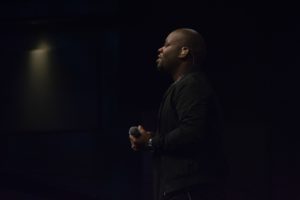Four Reasons Older Pastors Do Not Retire When They Need To
Author: Dick HardyA time comes in the life of every lead pastor when the handoff has to occur.
Many pastors remember the days in the beginning of their ministries when 65, 70, or 75 seemed light years away. Saving for retirement was a nice option in their 20s but certainly not a necessity — particularly when they were making barely above minimum wage and had 6-month-old and 2-year-old crumb-crunchers at home to feed.
In days past, preparing for the future was tantamount to not believing in the return of the Lord. The problem for these now 80-year-old pastors is that the Lord has not returned, but their days of effectively moving the local church forward are over or close to it.
My pastor friends — David Thomas and James Ruddy — shared their observations. As lead pastors age, they tend to overstay and too frequently see the church decline. In particular, David noted the four reasons that cause this to happen. My consulting with pastors has afforded me a vantage point from which I have seen these happen over and over.
1. Identity. The pastor’s present ministry in the church is his or her only identity. While it is important to focus on what God has called us to do, this is too single-dimensional in that it does not develop a life outside the church. In fact, in some cases we might see this as arrogant. The church needs me so badly that I cannot afford to develop any other part of my life. The church will crumble without me. Few verbalize this, but their actions speak louder than words. Fortunately for the church, it will not crumble when you leave.
2. Financial. The pastor is not financially prepared to step away. We look at wonderful gray-haired men and women who seemed prepared for anything as they aged — but sadly, they are not. Pastoring has never made the Forbes list of highest-paying careers in the past and the forecast for the future is not much different.
These wonderful servants of God gave themselves to the church sacrificially for so many years. As they near retirement, they may be making a reasonable amount of money but the value of saving for retirement is in the younger years when one has decades to grow the nest egg. An older pastor will seldom say it but one of the primary reasons he does not step away is … he cannot afford to. He needs the church’s paycheck to live. By the way, church boards need to take note of this reality and take care of their fiduciary responsibility to set in place and fund a retirement account for all their pastors, even the younger ones.

3. Distorted work ethic. There are men and women in ministry who have been taught, and they believe, that to work hard is a high virtue. I concur. “Work, work, work” sounds good and noble. But the problem is some of these same pastors believe wrongly that to burn out is better than to rust out. This concept is fraught with pride. If I don’t do it, nobody will. Certainly no one works as hard as I do. David Thomas asks whether there might be a better third option: “How about to transition out and to do it well?”
I have wise, older pastors in mind right now who have looked themselves in the mirror and said, “I’m not as young as I used to be, and I need to transition this church and in doing so transition me.” This is good and it often takes years to do. These pastors are not lazy. They have extremely strong work ethics. They live to serve and they live to see the church flourish. They realize there is life beyond the pulpit. There is no time like the present to think about it … and if you are over age 55, start taking action.
4. No Timothy. Pastors who do not spend time considering the future of the church with respect to new leadership that will move the church forward shortchange everything. Our model should be Paul: raise up a Timothy. It is an ultimate legacy.
A Timothy does not necessarily look or think like we do. They are another generation. Developing a Timothy takes time and energy. They sometimes make messes. Lead pastors who are insecure or who feel tomorrow will be a good day to start thinking about training up a Timothy either do not transition, do it too late, or do it poorly.
When trained and empowered, a Timothy can do amazing things for God. Here is where the pastor can have an injection of valid pride. When an older quarterback goes to the sidelines, if the quarterback who takes the field is the younger one he has mentored, he should burst his buttons with pride — the right kind of pride. To see God accomplish the transition and use the pastor along the way to His end is a wonderful thing.
Here are my recommendations to avoid the four scenarios above. This will create a plan to finish healthy and well and to leave the church with a bright future in the good hands of your successor.

1. Get a hobby. If you need help with this, ask a friend or family member to help you think in terms of life outside of church. Do not sit and say you do not like to do anything else. This is a problem. You have trained yourself to only care about one thing. You will be extra spiritual if you broaden your interest and maintain a healthy lifestyle.
2. Start saving money. You may say, “It is too late to make any difference.” It is never too late. If you are 70 years old and have never saved, start today. If you are young, it is never too early. Also, if you are in the position to opt in or out of Social Security, you should opt in. Never opt out. No Congress or president in the future will ever have the political stomach to eliminate Social Security regardless of the naysayers. If they do, then it is all over for the whole country and it will not make any difference anyway. Save for retirement now.
3. Examine whether the pride of working hard has overtaken the wisdom of rest. If you are offended by this suggestion, I suggest you look deep inside. Start with the Genesis model and rest 1 out of 7 days. Most pastors who do not have this in place are violating this instruction from the Lord to take a Sabbath rest. Be smart and delegate. Look for paid and lay leaders to do the work of the ministry. Jethro had something to say to Moses about this in Exodus 18.
4. Throughout your ministry life, you should always be investing in younger pastors. Once you hit your 50s, you should begin to examine the landscape to identify your successor. Have one selected by the time you are 60, and begin sharing the pulpit until, by age 70, you are out and he or she is fully in the saddle. If you read this recommendation as “life is over,” I strongly suggest you go back to recommendation No. 1 and get a grip on the fact there is life after pastoring. It is just a new station in ministry. Enjoy it.
Lead pastors must finish well. To do so, they need to regularly think in terms of their own spiritual health and that of the church. At the end of the day, the question is not: How successful was I in running myself into the ground and leaving the church in a state of decline? The question should be something like: Did I do what God asked me to do and hand off His church to the person I’ve chosen to lead it to the next level?
I know what my answer would be. How about you?
Note: Special thanks to pastors David L. Thomas at Youngstown, Ohio, and James Ruddy at Littlestown, Pennsylvania, for their contributions to portions of this article.
DICK HARDY is founder and president of The Hardy Group, a pastoral leadership consulting firm for lead pastors. Everything but preaching is his theme. Dealing with stuff that keeps you up at night is his focus. Contact Dick at dhardy@thehardygroup.org or visit the website www.thehardygroup.org.
